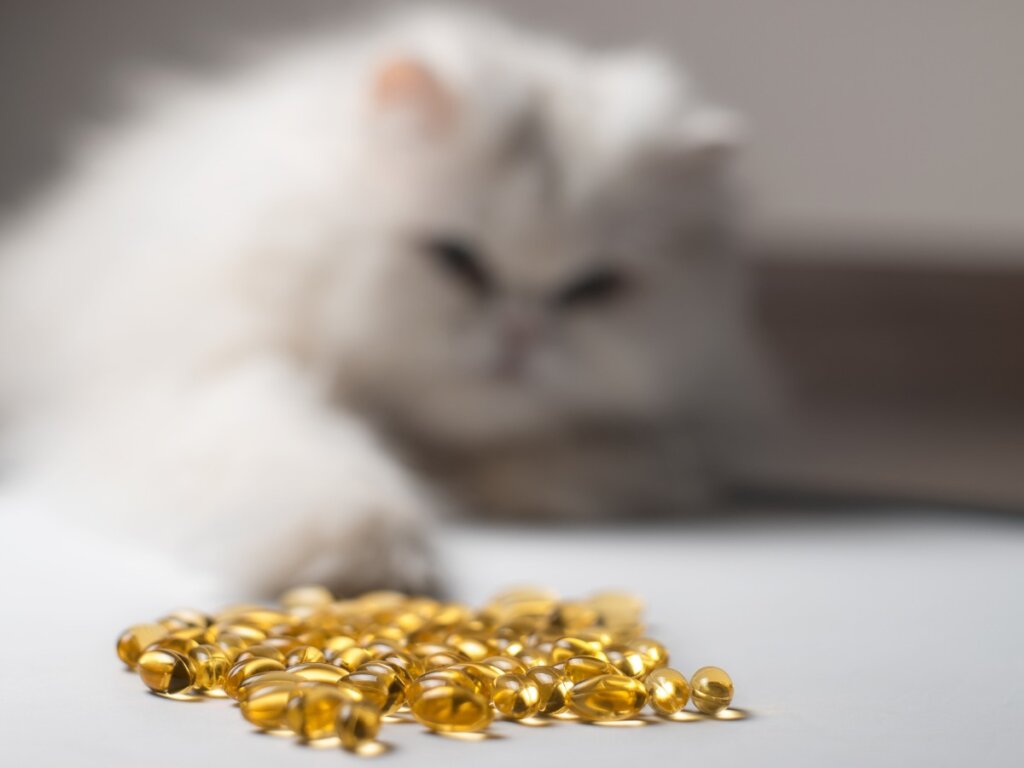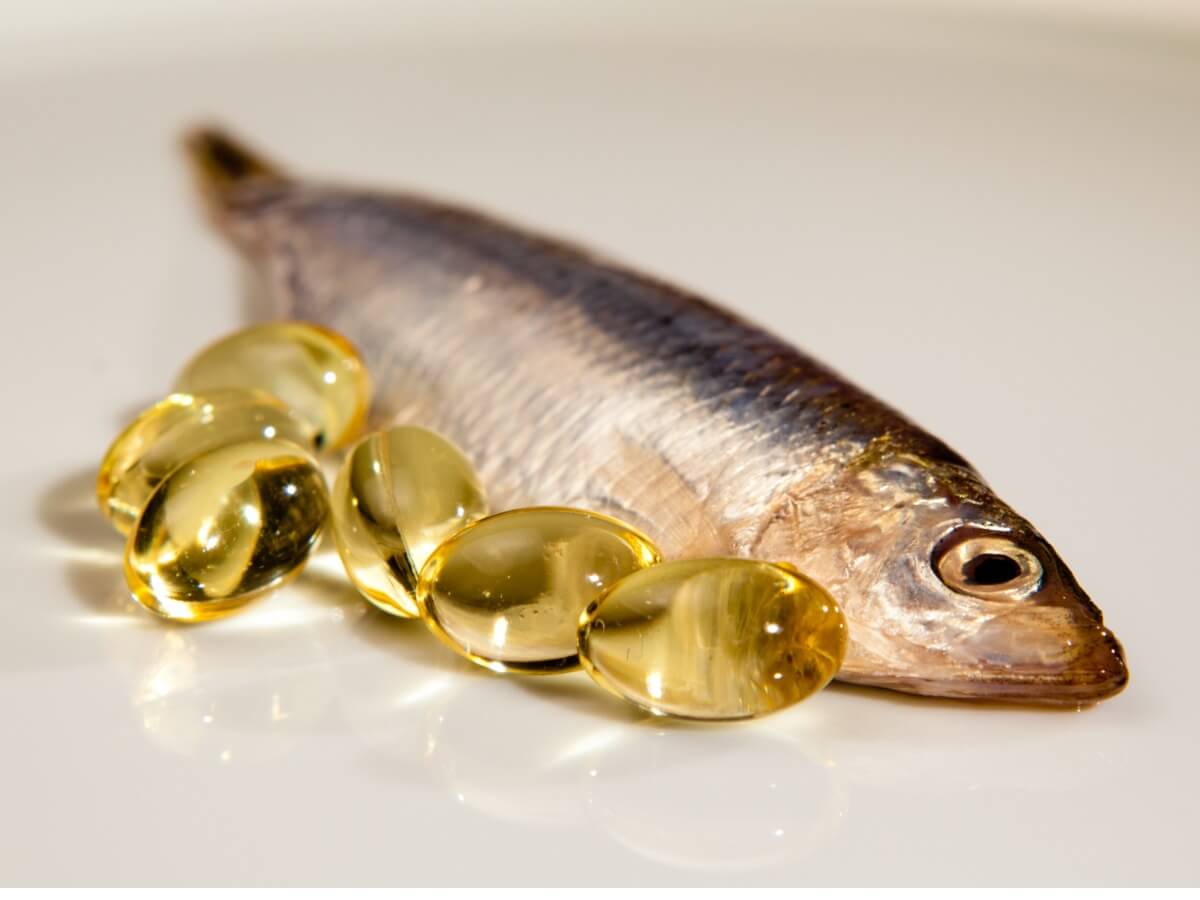14 Benefits of Fish Oil for Cats
Including fish oil for cats as a supplement (in capsules) or as a natural supplement in their diet will bring great benefits to their health. We invite you to find out more.

There are certain food supplements that are truly beneficial for pets. Undoubtedly, fish oil for cats is one of them.
However, as always, you should consult with a veterinary professional about which is the best supplement in the diet of a particular animal. Having said that, the use of fish oil in felines doesn’t usually have contraindications and there are many advantages for their health. If you want to know more about this, then keep reading.
What is fish oil for cats?
Fish oil is a dietary source rich in omega 3 fatty acids. These substances would be included within “beneficial fats”, both for people and for other animals capable of metabolizing them.
This is so because fatty acids fulfill many functions, from cell growth to the development of muscle activity. The intake of these fatty acids in cats can be carried out through fish oil, among other food sources.
Properties
Fish oil contains docosahexaenoic acid (DHA), essential for brain development, and eicosapentaenoic acid (EPA) which, among other benefits, lowers blood pressure. However, it should be noted that this healthy fish oil for cats can’t be extracted from all marine meats. Mainly, sardines, tuna, horse mackerel, anchovy, salmon, and herring will be selected.

Benefits of fish oil for cats
The benefits of fish oil for cats are numerous, as long as you opt for a quality one and give it in the right way. These two points will be discussed in the following sections, but first we’ll list the advantages of their use:
- The cat’s coat and skin will be healthier.
- Fish oil makes skin allergies less intense and sometimes protects them completely.
- Influences better fertility.
- In pregnant cats, it helps the correct mental development of the fetuses.
- In addition to promoting brain development, it helps the brain to stay healthy throughout its life.
- Following on from the previous point, in old age it improves the cat’s cognitive functions.
- It protects the immune system by increasing defenses.
- It acts as an anti-inflammatory.
- Takes care of the senses of sight and hearing.
- Regulates the level of cholesterol and triglycerides.
- Protects against osteoarthritis, arthritis and degeneration of the cartilage of the animal’s joints.
- Promotes the proper functioning of the renal system.
- Keeps the cardiovascular system healthy.
- It reduces the chances of the cat suffering from cancer, as indicated by professional magazines.
How to choose the best oil
Many brands and types of fish oil for cats can be found on the market. It’s important to know how to choose a quality one for the animal, taking some safety considerations into account.
Among the aspects to take into account, it’s worth choosing one that’s 100% natural, without additives or other synthetic ingredients. To be sure of this, just look at the oil’s label and analyze its components.
On the other hand, the fish oil that comes from smaller fish is usually considered better, as they accumulate fewer impurities in their bodies.
Furthermore, these fish should come from free fishing. This is because the fish in fish farms are fed with products that may affect the quality of the oil. In addition to the aforementioned, fish oil for cats must come in a container that protects it well, as it’s very sensitive to heat, air and light.
Finally, a key aspect in determining whether fish oil is suitable is its smell. It shouldn’t smell strong, nor too fishy, but rather have the smell of the sea. An odor that’s too strong may indicate that it has oxidized and that it’s no longer going to provide any benefit.
Application
As experts indicate, some fish oil capsules come as a dietary supplement. However, since in many cases offering a pill to pets is quite complicated, liquid oil is usually chosen.
If you choose the liquid option, the ways to give the fish oil to the feline are very simple. Even so, it must be remembered that cats have a very exquisite palate and could reject this new accompaniment to their meals.
Therefore, you can start with a minimal amount (half a small spoon). You can add this to their usual food and mix it in.
- In the feed: High-end feed always has fish oil among its ingredients. However, fish oil oxidizes in the air and loses its properties. For this reason, in the first feed bowls that are served to the feline the oil may fulfil its function, but not after a while. For this reason, you can add a tablespoon to the feed.
- In homemade meals: Either in raw or cooked diets, fish oil can be used to complete its preparation.
Tips for optimal use
In order for fish oil for cats to retain its properties as long as possible, certain tips can be followed.
- Once opened, it should be kept in the fridge. In this way, oxidation is prevented.
- The bottle should remain closed after pouring the oil into the food.
- Don’t go overboard when buying oil. It’s better to buy the right one to last for 30 or 60 days, because beyond that time it can lose its properties.
- Finally, you have to serve the fish oil to the cat just when it’s going to eat.

Fish oil can be very good for felines, as long as it’s administered in the right doses. If you have any questions regarding their nutritional health, go to the vet.

